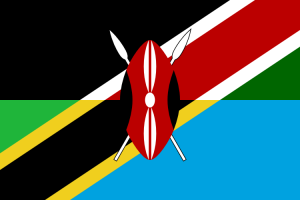Difference between revisions of "Language/Swahili-individual-language/Grammar/Questions"
| Line 99: | Line 99: | ||
|} | |} | ||
== | ==Videos== | ||
===How to ask questions in swahili?=== | |||
<youtube>https://www.youtube.com/watch?v=uCT9lPCWueM</youtube> | <youtube>https://www.youtube.com/watch?v=uCT9lPCWueM</youtube> | ||
===Learn Swahili: nani? & nini? (Question words)=== | |||
<youtube>https://www.youtube.com/watch?v=KfHHN0s2F9Q</youtube> | |||
Revision as of 15:25, 1 January 2022
Hi Swahili Learners! 😃
➡ In today's lesson we will learn how to ask QUESTIONS in Swahili.
Happy learning!
Interrogative words are usually placed at the end of a sentence in Swahili (with the exception of "kwa nini" (why) which is always placed at the beginning of a sentence).
Question words in Swahili
| swahili | English | Examples |
|---|---|---|
|
Who? |
|
| Vipi? | How? |
|
| -je ? | How? | Unlike the other question words, ‘je’ is used as an affix of a verb, for example:
Because the stress is (almost) always on the penultimate syllable of a word, this means that unajua becomes unajuaje, with the stress on the ‘a’ rather than the ‘u’. |
| Gani? | What type of? |
|
| Nini ? | What? |
|
| Ipi ? | Which? | |
| Ngapi ?
Kiasi gani ? |
How many?
How much? |
Ngapi is the only question word which changes form to agree with the class of the noun it describes. So you would ask ‘watoto wangapi?’ (how many children) or ‘miaka mingapi?’ (how many years). Don’t worry about this for now, and just use ‘ngapi’ until you learn the correct form with each noun class. |
| Ni bei gani ?
Ni bure |
What is the price?
It's free |
|
| Wapi ? | Where? |
|
| Lini ? | When? | |
| Kwa nini ? Mbona ? | Why? |
|
| Kwa sababu ... | Because ... |
|
| jibu / majibu | the answer(s) |
